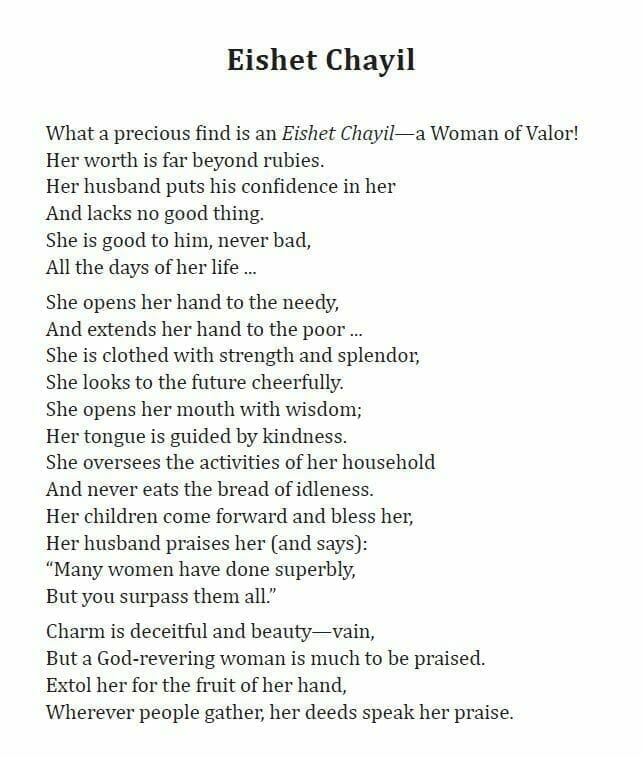Eishet Chayil – A Woman of Valor
Eishet Chayil stands as one of Judaism’s most beautiful and enduring tributes to Jewish women. Found in the Book of Proverbs (31:10-31), this ancient poem resonates through generations as a celebration of feminine strength, wisdom, and dignity.
The Tradition
Every Friday evening, as families gather to welcome Shabbat, Jewish households around the world continue a cherished tradition: the singing of Eishet Chayil. Husbands honor their wives with these timeless verses, acknowledging the invaluable role of women in maintaining both home and tradition.
A Poem of Depth and Meaning

Written as an acrostic, with each verse beginning with successive letters of the Hebrew alphabet, Eishet Chayil paints a portrait of an accomplished woman who embodies the highest virtues:
- She manages her household with wisdom and grace
- She conducts business affairs with sharp acumen
- She extends her hands to those in need
- She speaks with wisdom and teaches kindness
- She faces the future with strength and dignity
Beyond the Home
While often associated with domestic life, Eishet Chayil presents a remarkably modern vision of womanhood. The woman described is not confined to household duties but emerges as a dynamic force in business, community leadership, and charitable works. She is praised not only for her dedication to family but also for her entrepreneurial spirit and financial wisdom.
A Living Legacy
Today, Eishet Chayil remains deeply relevant, offering insights into the timeless qualities that define true leadership and character: compassion, wisdom, and diligence. Its verses are often recited at Jewish women’s funerals, celebrating lives lived with purpose and dignity.
שקר החן והבל היפי אשה יראת ה’ היא תתהלל
“Charm is deceptive and beauty is fleeting, but a a G‑d-fearing woman, she should be praised.”
Aramaic

English Translation

 Our Parks will be closed Sunday, April 13th for Passover
Our Parks will be closed Sunday, April 13th for Passover 